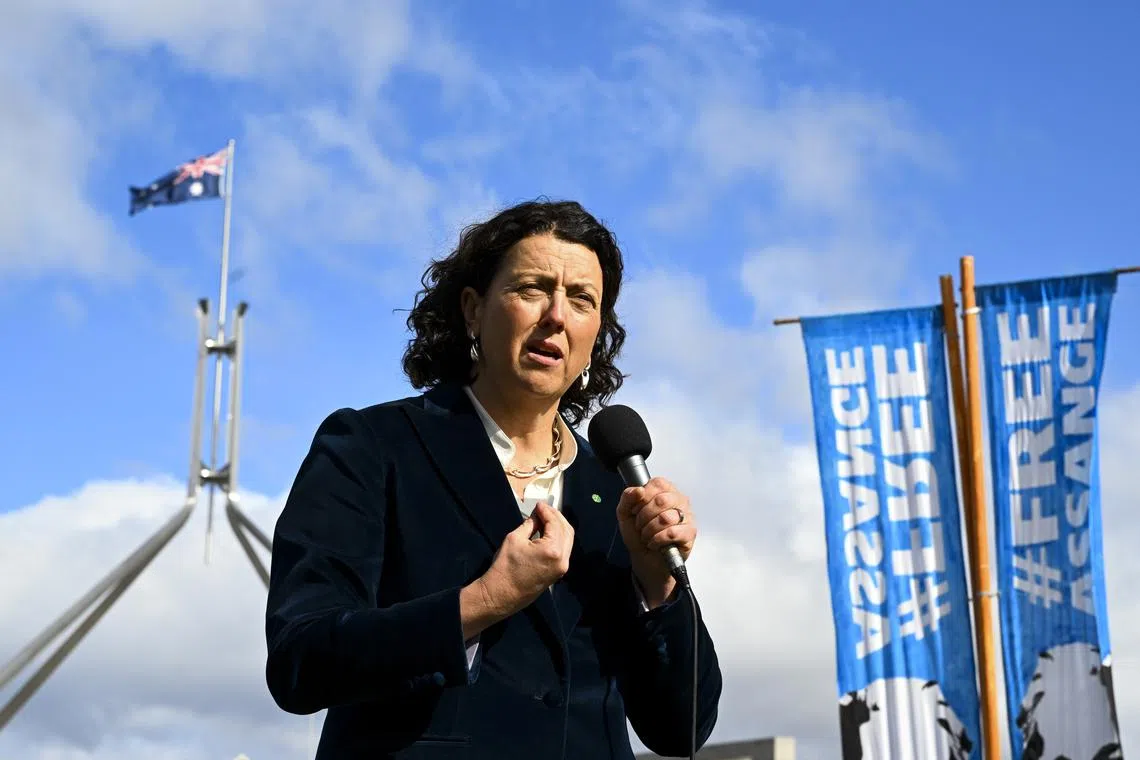Australia’s ‘teal’ independents gunning to be louder voice in govt on climate, gender equality
Sign up now: Get insights on Asia's fast-moving developments

Independent MP Monique Ryan, who defeated then Australia Treasurer Josh Frydenberg during the election in May, is one of the "teals", a new political force in the country.
PHOTO: EPA-EFE
Follow topic:
SYDNEY – At Australia’s federal election in May, a new political force emerged as a wave of independent candidates defeated key MPs from the ruling Liberal-National Coalition and helped to topple former prime minister Scott Morrison.
These independents – all high-profile women – ran popular campaigns that called for stronger action on climate change and gender equality, as well as greater curbs on corruption. Six independent MPs defeated Liberal members in the 151-member House of Representatives, joining four like-minded independents who had won at previous elections.
And it appears that the ascendancy of this group is not just a passing fad. At upcoming elections in Australia’s two most populous states, Victoria and New South Wales (NSW), a new crop of candidates aligned with the group is set to further disrupt the dominance of politics by the Coalition and Labor.
Though this broad grouping of like-minded politicians is not officially a party, they have become known as the “teals”.
Australia’s recent series of bushfires, droughts and floods
Analysts believe the group’s candidates at Victoria’s election on Saturday could potentially hold the balance of power if the ruling Labor party, which is favoured to win, fails to secure a parliamentary majority.
In the Melbourne seat of Hawthorn, Ms Melissa Lowe, a manager at Swinburne University, is considered one of several independent candidates with a genuine prospect of defeating her major party rivals.
Significantly, she volunteered with the federal campaign of independent candidate Monique Ryan, who in May defeated the Treasurer Josh Frydenberg for Kooyong. He had been seen as a future prime minister.
Ms Lowe said this week that she hopes to prove that the independent movement is a permanent force in Australian politics.
“The pressure I feel is to uphold this action and make sure that community voices are heard,” she told AAP news agency, adding that having independents in the federal Parliament “can’t be just a one-off”.
The teals have received backing from Climate 200, a fund-raising body founded by millionaire climate activist Simon Holmes a Court, who believes the teals could win three seats in Victoria’s 88-member Lower House on Saturday.
Climate 200 is reportedly planning to support up to 10 candidates at the NSW election in March 2023 – with the first candidate it has backed, Ms Joeline Hackman, this week launching her campaign in the Sydney beachside seat of Manly.
“I won’t have to vote along party lines and I will align myself to issues that are important to my constituency,” Ms Hackman told the Manly Observer news site.
The rise of the teals partly reflects a growing disillusionment with the major parties in Australia,
In the past 50 years, support for Labor and the Coalition has dropped from more than 90 per cent to a record low in May of 68.5 per cent. In addition, the Greens won 12 per cent of votes and Pauline Hanson’s One Nation party received 5 per cent.
The teals have particularly targeted Liberal-held, inner-city seats, where voters have become increasingly concerned with the Coalition’s lacklustre approach to addressing climate change and gender equality.
This has led to a fierce debate within the Liberal party over whether to adopt more progressive policies or to abandon these seats and to try to expand its conservative base.


